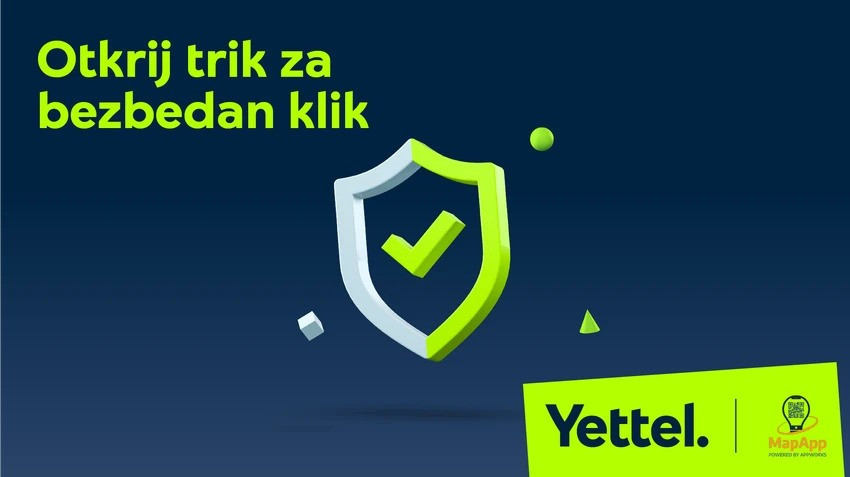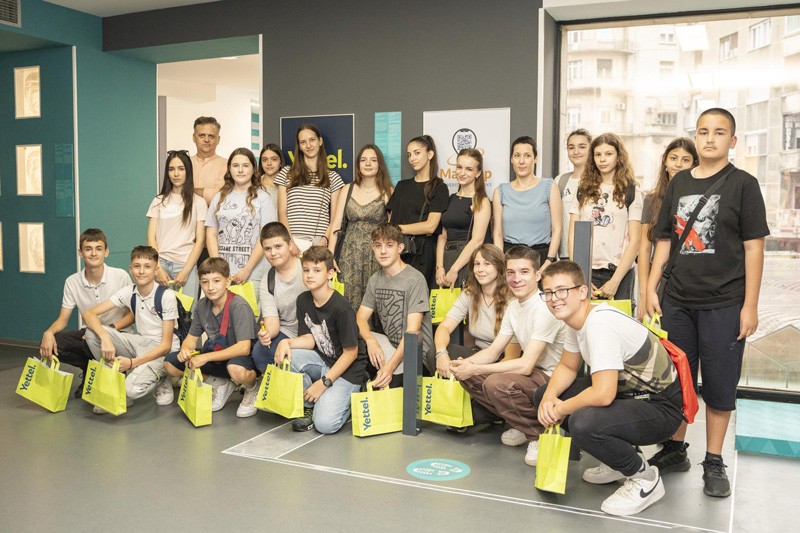
Mapapp × Yettel: a quiet campaign for sharper digital instincts
Give a child a smartphone and they can cross continents before breakfast. The question is whether they carry a compass or wander blindfolded. Mapapp interactive posters turn the nearest classroom wall into a doorway to safe, informed exploration of the web.
When a classroom poster starts talking, pupils listen. Mapapp is exactly that: a sheet of paper whose QR codes open short texts, two-minute videos and single-question quizzes on staying safe and street-wise online. The idea is micro-learning—knowledge served in small enough bites that it sticks. Studies cited by the University of Dresden suggest retention rises by roughly a fifth when lessons are cut to these sizes.
Why we built it
Smartphones sit in almost every pocket and yet only two out of five Serbian children say an adult guides them through the hazards of the web. We wanted a tool light enough for teachers to deploy between classes and friendly enough for nine-year-olds to use on their own. Interactive posters met both needs: no log-ins, no hardware beyond the handset pupils already carry.
Each Mapapp poster is peppered with QR codes. One scan and the learner slips from paper to screen, landing on a short video, a micro-quiz or a brisk text that tells them just what they need to know—no more, no less. The goal is knowledge in sprints, never in marathons.
Why we teamed up with Yettel
Serbia’s children spend more than three hours a day online; the oldest stay on for four-and-a-half. Yet barely 40 percent say an adult shows them how to stay safe. Yettel has spent the past decade running safety workshops for young users. Their network reaches the very schools Mapapp needed and their sustainability targets call for 90,000 people trained in digital skills by 2025.
- Together we distributed 450 Mapapp posters - 300 to primary schools and 150 to secondary - in every county of Serbia.
- Each scan drops a pupil into the Mapapp app: plain-language guides, short animations, and a quiz that checks understanding before the bell rings.
- A friendly contest - In phase two we set a nationwide quiz. Online for most, live for four pilot schools. Over 5,300 pupils scanned the codes; 1,116 took the quiz; the top 29 met in Belgrade’s Museum of Illusions for the final round and a guided tour on cybersecurity. 29 finalists walked away with prizes at Belgrade’s Museum of Illusions and, more important, with a sharper sense of how to keep their data intact online.

What pupils actually learn
- Recognising a phishing link before tapping it
- Setting a private profile on social media
- Spotting deepfakes and reporting abuse
- Basic rules for strong passwords and two-factor authentication
Attention spans shrink to ten-minute slivers; Mapapp works in two-minute bites. That is micro-learning: swift, repeatable, sticky. Every module lives inside one QR code. A scan, a two-minute lesson, a single quiz question—finished.
How the posters are made
AppWorks handles the mix: editors and teachers write the scripts, designers lay out the poster, programmers link each QR code to its micro-lesson, and a small test group of pupils tells us when the wording trips them up. The Innovation Fund’s 2022 Mini-Grants programme helped us refine this production line and add new topics.
Mapapp is neither an app alone nor a poster alone but the narrow bridge between them. By keeping the gap small—one scan wide—we make it easy for a child to carry hard-won advice from the school wall into the scrolling world of their phone. If your organisation wants that bridge in its own corridors, our inbox is open.